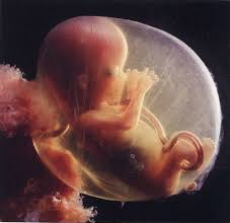
Email: derinadetosoye@gmail.com
Total Article : 11
About Me:I am a student at sixth-form currently studying Economics, Biology & Philosophy and Ethics. My articles are mainly focused on Philosophy and explores the different approaches to ethics. They are written in a way which can be used for revision purposes.

What comes to your mind when you think of abortion? Simply put, abortion is defined as the deliberate termination of a human pregnancy most commonly performed during the first 24 weeks; however, for many, abortion is perceived as a far more complicated and controversial issue due to the undeniable fact that it involves the killing of a foetus – an act which is seen as intrinsically wrong not only by society but also in many religious sources of morality such as the Bible, Church teachings and Natural Law. Furthermore, the significant controversy that lies within this topic is the fact that abortions are permitted within 24 weeks of pregnancy where the foetus is ‘viable’ however people’s definition of the beginning of a life is subjective. Thus religious teachings are constantly referred to and mentioned when discussing the morality of abortion, which poses the question “does religion provide us with good moral guidance?” Is religion able to answer the issues associated with abortion such as ensoulment, personhood or the sanctity of life? Or does it simply complicate the debate further?
A key issue in the abortion debate is whether or not the foetus’s life is sacred and of special value - known as the sanctity of life, the view that human life is sacred. Sanctity of life is significant in determining the morality of abortion because if the foetus isn’t sacred (which can be argued isn’t due to the fact that it isn’t actually a human yet) then abortion can somewhat be deemed as acceptable - as no ‘human’ life has been destroyed. However, the Bible counteracts this argument as shown in Exodus 20:13, “Thou shalt not kill.” This deontological, absolute teaching supports the sanctity of life argument as it strictly commands that humans are forbidden to kill anyone and thus emphasises the value of life, revealing that life is absolute and an intrinsic good which must be protected at all times. This concept is further underlined in the Donum Vitae, a Roman Catholic document, which states that “life is always a good” and that no one wields the right to “destroy directly an innocent human being.” Therefore, even though abortion is legal up to 24 weeks because the foetus isn’t seen as ‘viable,’ the Bible and Roman Catholic teachings clarifies that life is sacred and an intrinsic good which should not be taken under any circumstance. Moreover, one of the key Roman Catholic teaching states that “man’s life comes from God; it is his gift,” meaning that human beings are to be respected from the moment of conception among in which it is the inviolable right of every human being to live. So despite the fact that a foetus may not be physically viable sub-24 weeks, the fact it is a form of potential life means that the foetus should be protected and not destroyed, providing Christians with a clear moral guidance that abortion is immoral. A scholar that argues in favour sanctity of life is Albert Schweitzer, who developed the theory known as the ‘relevance for life.’ This states that killing is wrong and should be avoided as every creature is built with a desire to live a long life. Natural Theology, a reason created by Christian philosopher Thomas Aquinas, also agrees with the argument that life is to be preserved as he believed that this is one of the five fixed moral rules installed into our world that we, as humans, should be able to work out and follow in order to please God.
Jonathon Glover, however, disagrees with the idea that killing is intrinsically wrong (i.e. absolutely wrong in and of itself) and instead holds the view that killing is directly wrong, meaning that it is wrong due to the negative side effects and consequences derived as a result. This rejection of life being intrinsically wrong yet still directly wrong stems from his view that life is valuable “only as a necessary vehicle of consciousness” which suggests that life is only valuable due to the fact that it is a vehicle for consciousness, counteracting the sanctity of life argument which states that life is valuable no matter what.
Taking all the factors from the sanctity of life argument into consideration, religion helps us to gradually understand abortion as a combination of Church teachings and biblical references provide a very convincing argument which further peels through the veneer of abortion being right as they are words coming from the supreme; omniscient God.

0 Comment:
Be the first one to comment on this article.